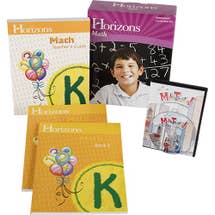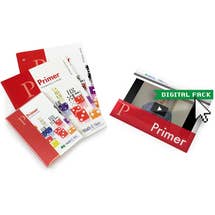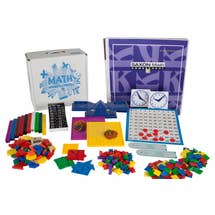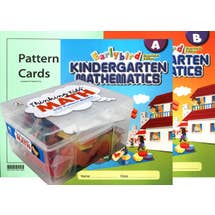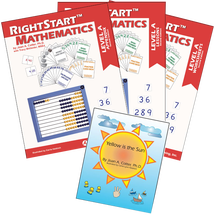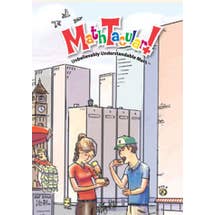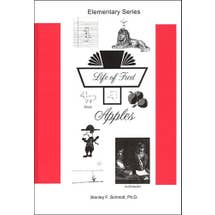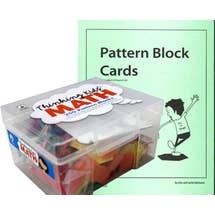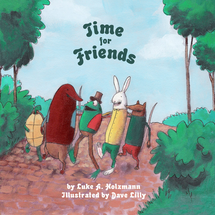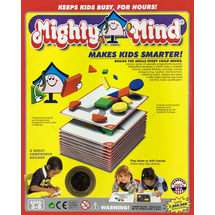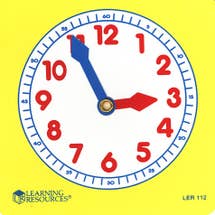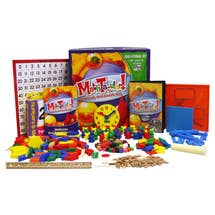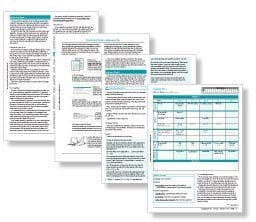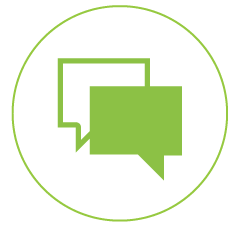We use cookies for performance, analytics and marketing. By using this site, you agree to our use of cookies. For more information, view our Cookie Notice and Privacy Policy.
Kindergarten Math Curriculum
Did you know that kindergarten is optional in many states? But even if you aren’t required to start formal math lessons until first grade, giving your child a gentle introduction to numeracy at age five is an excellent idea! You not only lay the foundation for future math skills but you also establish math as an enjoyable, game-like experience. With this guide, you can find the best kindergarten math curriculums, download free kindergarten math worksheets, get tips for teaching, and learn what exactly is included in kindergarten math with this guide.
Kindergarten Math Curriculum
Each option below has everything you need for an entire school year of kindergarten math. And even if you don’t use it in the context of a traditional school year, each program is a great resource kit of math exploration for your 5-year-old. Best of all, these five choices are parent-tested and come out top of the pack when it comes to creating math-adept children.
Compare these kindergarten programs using the comparison chart you can find here. And if you still feel ill-equipped to make a choice, reach out to an Advisor. Their advice is totally free.
When it comes to early years, it’s essential that you not push your child beyond their development. After all, rustration is not an effective teacher! So use the placement tests here to determine if these kindergarten levels are, in fact, the best choice for your child.
See the full scope and sequence of each kindergarten math program here.
Horizons K Math Program
With Horizons K Math Program, students learn to count by 1's, 5's, 10's, 2's, and 4's up to 100; recognize and write all families to 100; add or subtract a single digit without regrouping; identify colors and shapes; name the days of the week; and more.
Horizons Math K is a traditional spiral math program. The pages are colorful and engaging and start your student solidly on their journey through mathematics. The Teacher’s Guide provides all the needed information to make your child’s kindergarten math year a success. Each of the lessons contains new concepts along with review from previous lessons.
Singapore K Math Program
Singapore K Math contains a wide range of activities that introduce young children to basic math concepts of color, shape, size, number, length, weight, capacity, time, money, and graphs.
This Earlybird program is a bright and colorful way to introduce your kindergartener to math, laying the foundation for the concrete → pictorial → abstract approach that Singapore takes in the subsequent levels. Singapore is an excellent program for a student who does not require a large amount of practice to master a concept. Mental math is emphasized in Singapore math and is introduced even at this youngest level.
Saxon Math K Program
Saxon uses a traditional spiral approach to teach mathematics. In the Saxon Math K Program, each lesson starts with a morning meeting when you and your student learn the days of the week and months of the year. This is also a time to review past lessons to ensure retention. After the meeting, the parent and student use the lessons in the workbook to learn new concepts and practice previous concepts. Saxon is designed for the parent to work alongside the child. The Teacher’s Manual is quite scripted, so teaching is easy.
Math-U-See Primer
Math-U-See for kindergarteners is labeled Primer. In this level, the student is introduced to mathematical concepts, but mastery is not expected. The parent watches a short video presentation, and then teaches the student. Each lesson uses the Math-U-See integer blocks to help the student see and experience in tangible form exactly how math works.
RightStart Math Level A Book Bundle
RightStart Math is a games-based program that focuses on mental math strategies. Level A is the introductory level in the program and ideal for kindergarten. This program requires the parent to work alongside the child for each lesson, playing games and using manipulatives.
Kindergarten Math Worksheets
Here are free kindergarten math worksheets. Each one is an excerpt from one of the kindergarten math curriculums listed above.
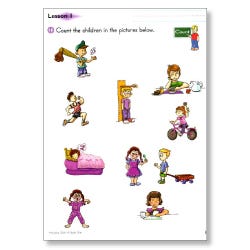

Horizons K Math Program
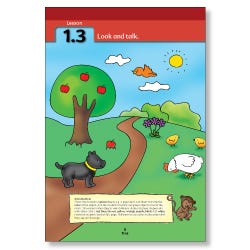

Singapore K Math Program
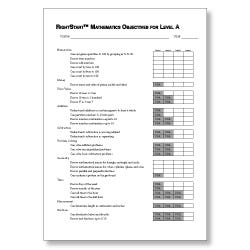

RightStart Math Level A
- subitizing 4
- patterning
- subitizing 7
- the AL Abacus
- dozens
- partitioning teens into tens
- comparing weights
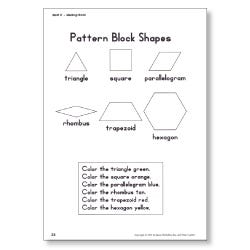

Saxon Math K
- shapes: triangle, square, parallelogram, rhombus, trapezoid, hexagon
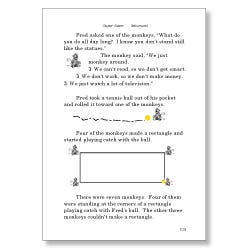

Life of Fred Apples
- time in hours
- different ways to add up to 7
Kindergarten Math Lessons
Kindergarten math lessons include learning and engaging with these basic concepts:
- Days of the Week
- Months of the Year
- Telling Time to the Hour or Half Hour
- Learning to Recognize and Write Numbers
- Simple Addition and Subtraction
- Ordering Smallest to Largest
- Grouping Similar Objects
- Basic Geometric Patterns
- Skip counting
Lessons should be short—just 10-15 minutes a day. Introduce a concept and then play with it through hands-on activities, games, and real life situations. Incorporate plenty of review since at this stage nearly everything is new and will take time to commit to memory.
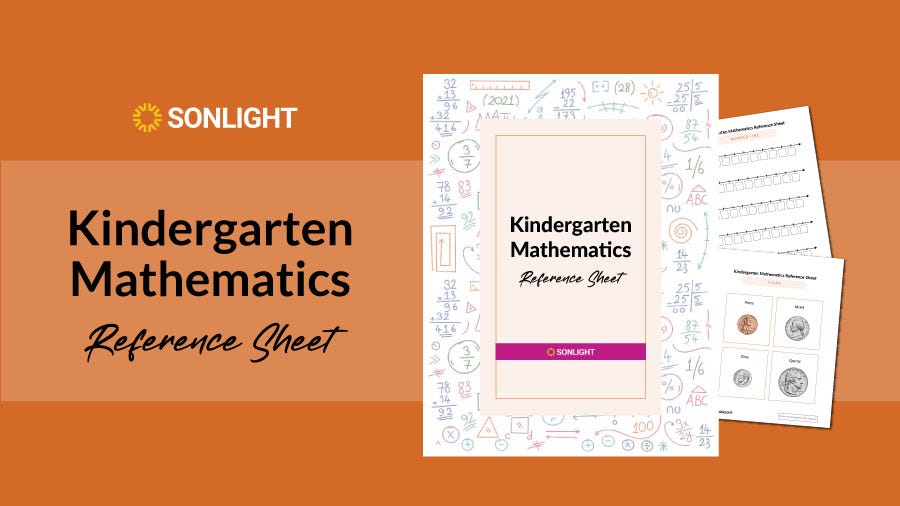

Kindergarten Math Problems & Equations
Kindergarten math is quite simple as children are still learning the basics of math vocabulary. But even at age five, students can begin to solve math problems with single digit addition and subtraction.
Kindergarten Math Numbers & Operations
In kindergarten, students learn one-to-one correspondence, a fancy way of saying counting. One-to-one correspondence refers to the parallel between actual objects (or actions) and their numeric word values. For example, you take one counting bear from a pile and say one as you move it to the side. Then you grab another bear and say two, adding it to the first bear. Or you take five steps and count each one outloud. Basically, it’s understanding that objects or actions can be counted in sequence by using our words for the numeric values. Each item is counted only once. The words correspond to the quantity of the thing.
Kindergarteners begin to understand that addition increases the amount and subtraction decreases it. Many math programs also incorporate time (both the clock and the calendar), money, patterns, and shapes. All of the math learned in kindergarten is incredibly practical and visible all around you. So be deliberate in pointing out these applications in your daily life: adding fruit at the grocery store, subtracting clothes from a pile as you fold and put them away, how many minutes or days left until an event, figuring the value of a handful of coins, etc.
Kindergarten Math Pre-algebra & Algebra
Although we tend to think of algebra as a high school course, kindergarten students are not too young to begin thinking algebraically. Solving a simple equation such as 1 + ? = 2 lays a strong foundation for figuring algebra equations in the future. During kindergarten, encourage students to use manipulatives and pictures to help them develop their algebraic thinking. Always take the approach of solving a fun puzzle versus doing hard math work.
Kindergarten Math Games
When you are just starting out with math lessons in kindergarten, use a lot of games to experience math.
- Have your student roll two dice and add or subtract the numbers, using counting bears, beans, or other manipulatives.
- Draw a chalk number line on the driveway and physically experience your math facts by leaping from number to number.
- Practice patterns with colored chocolate candies.
TIP: Involving movement helps with memorization. The more senses you get involved in the activity, the more firmly it sticks. Keep kindergarten math light and fun, exposing your child to a wide variety of concepts without stressing over mastery.
Kindergarten Math Standards
You can find the Common Core math standards for the kindergarten level here. Most states in the USA have adopted these standards or slightly modified them. Even if you are homeschooling and don’t have to adhere to these standards, they can provide a healthy baseline by which to guide your expectations. With that said, standards are fairly arbitrary, and each child matures at their own pace. So if your child seems a bit behind, realize that they can quickly catch up once they gain the physical and mental development needed.
Kindergarten Math State Tests
Standardized testing usually starts in third grade, so there really are no standardized math tests at the kindergarten level. There’s no need to test your kindergartener in math. Just enjoy solving puzzles, playing math games, and exploring how math appears in day-to-day life.
Kindergarten Math Questions/Vocabulary
Your kindergarten student should be familiar with math vocabulary including
- Compare
- Number line
- Less than, Greater than
- Part, Whole
- Graph
- Pattern
- Largest to Smallest
- Equal, Equality
- First, Second, Third
- Hour, Minute
- The Days of the Week
- The Months of the Year
- Minute and Hour (on the clock)
- Addition, Subtraction
- Plus, Minus
- Circle, Square, Rectangle, Triangle
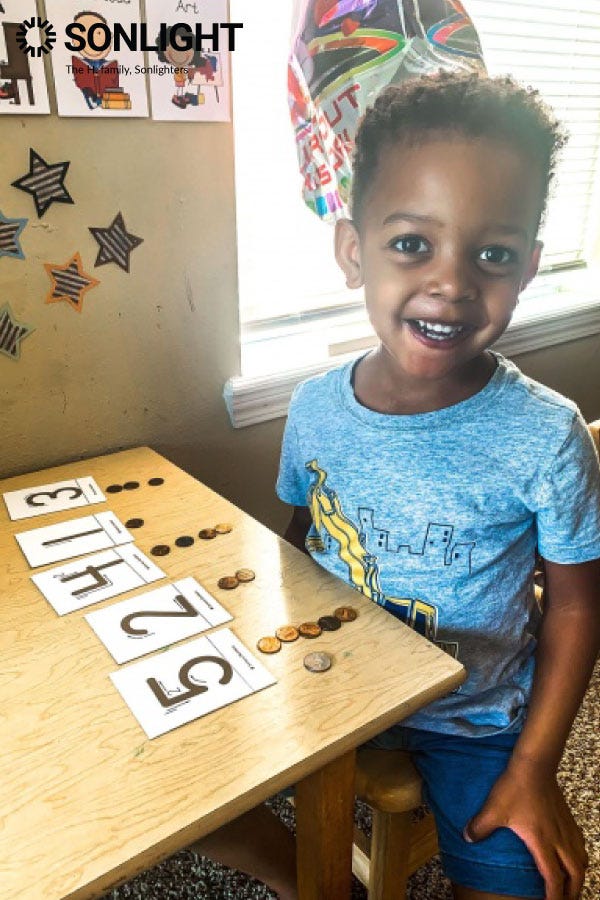

Kindergarten Math Materials, Supplements, & Manipulatives
Stock your kindergarten learning cabinet with math materials galore! All of these supplements can serve as extras for whatever curriculum you’ve chosen. Or if you take a more unschooling approach, you can simply let your child explore the manipulatives, videos, and books at-will, letting the learning happen naturally.
The Mathtacular 1 Video is the first in a series. So if your child loves it, you have additional volumes to add to your collection! It’s laugh-out-loud hilarious! Use Mathtacular to reinforce a lesson from your kindergarten math curriculum or as a fun bonus.
In Time for Friends, you’ll meet Frog and learn about telling time as he looks for his friends, finding unexpected joy along the way.
The Life of Fred book series follows Fred as he goes about his day and uses math to help him. You can begin the elementary series with the first book Apples any time after your child is able to count to ten. In addition to math, these books teach manners, science, history, and more.
